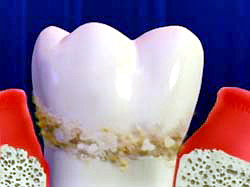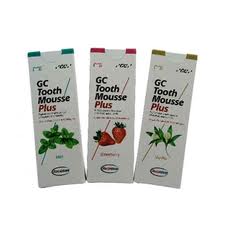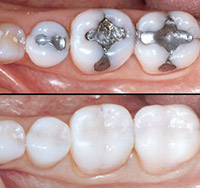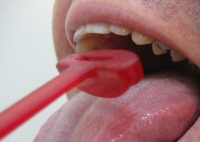Sports injuries are a common thing especially among the young people. Contact or collision sports tend to inflict certain amount of injury to the body but this can be reduced with the use of protective equipments, such as a mouth guard. Continue reading
Category Archives: Oral Care
What Are the Causes of Tartar on Human Teeth?
When you open your mouth while looking in the mirror, you noticed this crust-like thing stuck on the borders between your gums and teeth. No matter how hard you try, you cannot seem to remove it by yourself. This incrustation that forms on the teeth and gums is called teeth tartar, or known as dental calculus to the dental professionals. Continue reading
Side effects of radiotherapy to the head and neck on the mouth
Â
Radiotherapy is one of 3 treatment options that can be used to treat tumours, the other 2 being surgical removal and chemotherapy. Sometimes these therapies are used in combination with each other. There are many structures in the head and neck, therefore radiation to the head and neck area (could be due to oral, nose, skin etc cancers) can cause a multitude of complications as listed below: Continue reading
About Recaldent
Demineralization and Remineralization
A tooth is made up of enamel, dentine, and the pulp. Enamel is the hardest part of the body, even harder than any bone in your body. This is because enamel is made up of 90% inorganic matter, consisting mainly of hydroxyapatite crystals, which are essentially made up of calcium and phosphate.
After meals, the bacteria in the mouth will break down sugar or carbohydrate left on teeth surface, producing acids which will then cause demineralization of the teeth surface, depleting it of calcium and phosphate. This process starts in enamel, and can progress to the dentine and eventually pulp, causing pulpitis. Continue reading
How to Use a Fluoride Rinse
Fluoride rinsesare one of the many ways fluoride can be delivered to our teeth to prevent cavities. Studies on fluoride rinses have been made and in general, fluoride rinses resulted in significant cavities reduction of about 30 to 35%. On the basis of these findings, the simplicity of administration, and the lack of need for professional dental supervision, weekly fluoride-rinse programs in schools are becoming increasingly popular and are being aggressively promoted by dental public-health agencies. Fluoride rinses were approved as safe and effective by the FDA in 1974 and by the Council of Dental Therapeutics of the ADA in 1975. Continue reading
What can I do if I have bleeding gums?
What to do if I have bleeding gums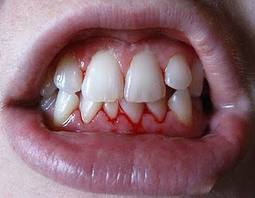
- Control the bleeding by applying pressure directly on the gums with a gauze pad, soaked in ice water. Avoid using gum gels to relieve pain and arrest bleeding. It only offers temporary relief and the disease thus advances further, causing more pain and complications.
- If the bleeding is due to local irritants, a professional scaling may be necessary to halt the bleeding.
- Maintain good oral hygiene, both of your teeth and soft tissues in the mouth Continue reading
What is Composite/Tooth Coloured Filling Material?
Definition
By Anusavice
Composite – in material science, a solid formed from two or more distinct phases (e.g. particles in a metal phase) that have been combined to produce properties superior to or intermediate to those of the individual constituents
Dental composite is defined as a highly cross-linked polymeric material reinforced by a dispersion of amorphous silica, glass, crystalline, or organic resin filler particles and/or short fibers bonded to the matrix by a coupling agent
About ulcers of the mouth-part 2
In the previous article “about ulcers of the mouth Part 1“, we have already discussed what is an ulcer, the causes and methods to identify the cause of an oral ulcer. In this next section we will be looking at the modailities used to treat ulcers of the mouth.
Treatments and home remedies for mouth ulcers
Treatment:
- Based on and targeted at the etiology
- Main goal of therapy: Relief of pain and reduction of ulcer duration. There are evidence that shows the most efficacy from corticosteroids and antimicrobials used topically.
1. Topical corticosteroids: Continue reading
How to Decide Whether to Brush Your Tongue
Brushing your tongue may not be a common thing to do but this is one area where one should be incorporating in your oral hygiene regime. The tongue is a habitat for oral microorganisms therefore there is a potential need for tongue cleaning to be a part of our daily oral hygiene. Continue reading
How to Rinse to Remove Plaque
Tooth brushing is generally effective in removing food debris and plaque on our teeth. However there are certain sites and conditions inside the mouth that could not be cleaned merely by toothbrushing alone. Therefore other plaque removal methods and devices should be utilized other than toothbrushing in our oral hygiene regime, which includes rinsing. Continue reading

